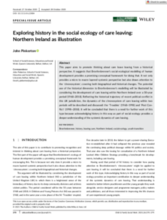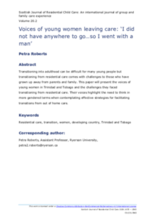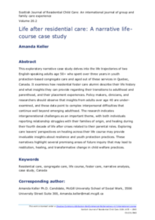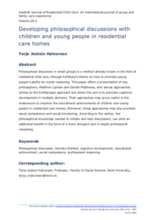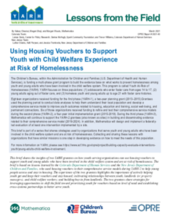Displaying 181 - 190 of 991
This paper, based on an extensive desk review, chronologically examines the evolution of aftercare laws and practices in India along with the factors that contributed to the rise of institutional care.
This paper aims to promote thinking about care leave leaving from a historical perspective.
The article discusses two previously published articles by the author and two co‐authors, where the topics are the history of leaving care support in Norway and how the Nordic welfare model may represent a problematic frame for leaving care support.
This paper explores the history of the rights movement of young people in care in England between 1973 and 2011.
In a qualitative study in Switzerland, the authors of this article have conducted 37 narrative interviews with people who experienced residential care between 1950 and 1990. The analysis was based on a reconstructive life course perspective and grounded theory.
Transitioning into adulthood can be difficult for many young people but transitioning from residential care comes with challenges to those who have grown up away from parents and family. This paper presents the voices of young women in Trinidad and Tobago and the challenges they faced transitioning from residential care. Their voices highlight the need to think in more gendered terms when contemplating effective strategies for facilitating transitions from out of home care.
This exploratory narrative case study delves into the life trajectories of two English-speaking adults age 50+ who spent over three years in youth protection-based congregate care and aged out of these services in Quebec, Canada.
Since the 1980s, an increasing number of researchers have focused on the educational attainment of looked-after children. Children in residential homes are in high risk of educational failure, and such failure may cause social problems later in life. Several scholars have called for efforts to promote lookedafter children’s ability to cope with academic challenges.
This study examined the rates and correlates of first and repeat births in a national sample of females emancipating from foster care in the United States.
This brief is part of a series that shares strategies used by organizations that serve youth and young adults who have been involved in the child welfare system and are at risk of homelessness. It examines a multi-phase grant program to build the evidence base on what works to prevent homelessness among youth and young adults who have been involved in the child welfare system in the U.S.

